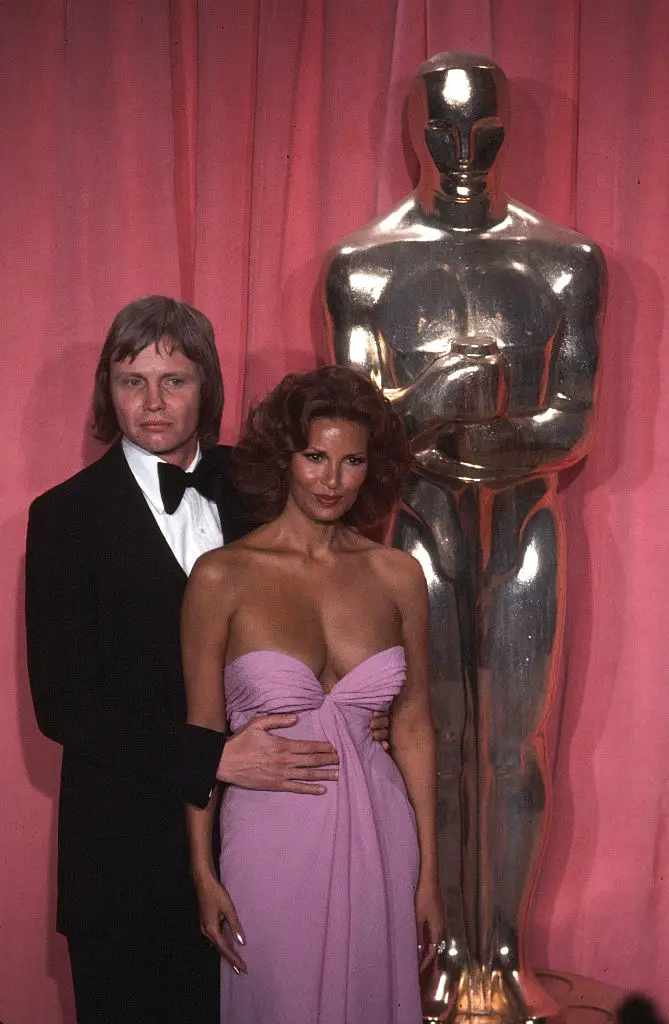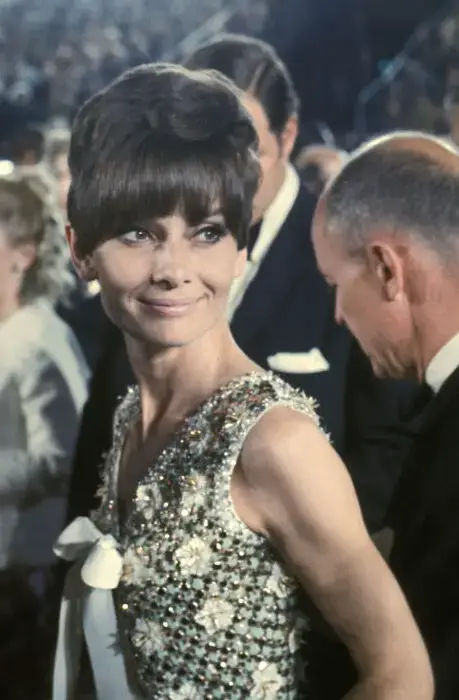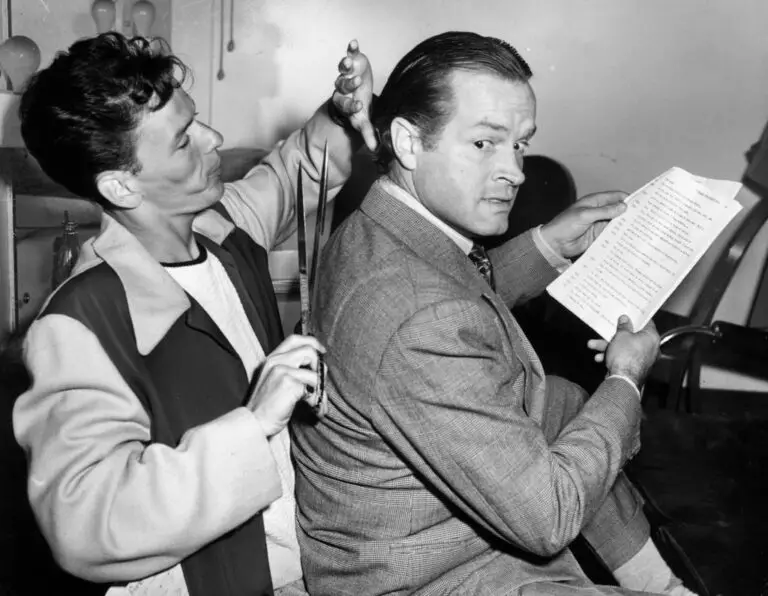The Academy Awards, commonly known as the Oscars, have long stood as the pinnacle of recognition in the film industry. Since their inception in 1929, the Oscars have celebrated cinematic excellence, honoring the talents of actors, directors, screenwriters, and film technicians. But beyond the golden statuette, the ceremony reflects broader cultural shifts, societal debates, and moments of unforgettable human drama.
One of the most iconic Oscar nights in history was in 1975, a year that marked a turning point for American cinema. It was a time when creative risks were being taken, darker narratives were being embraced, and a new wave of filmmakers was reshaping the boundaries of storytelling. With legendary directors like Francis Ford Coppola (The Godfather Part II) and Roman Polanski (Chinatown) at the forefront, the 47th Academy Awards became a symbolic stage for cultural evolution.
Yet, for all its cinematic triumphs, the 1975 Oscars were also marked by controversy, political discourse, and moments that continue to spark debate to this day.
A New Vision for American Cinema
By 1975, Hollywood was shedding its old image of glitz and glamour in favor of more grounded, hard-hitting narratives. The creative reawakening of the era was evident in the nominees that year. Films like The Godfather Part II and Chinatown presented complex, morally ambiguous stories that captivated audiences and critics alike.
Francis Ford Coppola’s The Godfather Part II was a cinematic masterpiece, breaking new ground as the first sequel in history to win Best Picture. Meanwhile, Roman Polanski’s Chinatown delivered a gritty, neo-noir tale of corruption, greed, and betrayal, themes that felt eerily relevant to the American public. These films not only demonstrated technical brilliance but also forced audiences to confront uncomfortable truths.
But while cinema was evolving, so too was the Oscars ceremony itself.

Controversial Moments on Stage
While modern award shows are no strangers to political statements, the 1975 Oscars were one of the first to see such themes play out in real time. One of the night’s most contentious moments occurred when Bert Schneider, director of the documentary Hearts & Minds, took the stage to accept his award.
The documentary, which provided a stark critique of the Vietnam War, was already a divisive film. But Schneider’s acceptance speech took things a step further. In front of millions of viewers, he read a telegram from Viet Cong ambassador Dinh Ba Thi, which included a message of “friendship to the American people.”
The statement was met with mixed reactions. Bob Hope, one of the night’s hosts and a staunch conservative, quickly responded by having Frank Sinatra read a message from the Academy, distancing itself from Schneider’s comments. “The Academy wishes to state that it does not share or endorse any political remarks made tonight,” Sinatra read.
This did not sit well with some of the other attendees. Co-hosts Shirley MacLaine and Warren Beatty were quick to fire back. Beatty quipped, “Thank you, Frank, you old Republican,” while MacLaine reminded Sinatra, “You said you were speaking for the Academy. Well, I’m a member of the Academy, and you didn’t ask me!”
This clash of ideologies added a layer of tension to the night, demonstrating how the Oscars had become more than just a celebration of film—it had become a reflection of cultural and political conflict.

The Dustin Hoffman “Beauty Pageant” Controversy
Dustin Hoffman, one of Hollywood’s most celebrated actors, stirred his own brand of controversy that night. Nominated for his portrayal of comedian Lenny Bruce in Lenny, Hoffman openly criticized the nature of the Oscars. He called the event a “beauty pageant” and referred to the ceremony as “ugly” and “grotesque.”
His comments drew a sharp response from host Bob Hope, who delivered a witty comeback during the live broadcast. “If Dustin Hoffman wins tonight, he’s going to have a friend pick it up for him—George C. Scott,” Hope quipped, referencing Scott’s famous refusal to accept his own Oscar a few years earlier.
Ironically, Hoffman did not win that night, with the award going to Art Carney for his performance in Harry and Tonto. This win was another source of controversy, as many believed that Al Pacino, nominated for his role as Michael Corleone in The Godfather Part II, had been “robbed” of the Best Actor award. To this day, cinephiles continue to debate whether Carney’s win was justified or if Pacino’s iconic performance should have been honored instead.

The Iconic Photo of Jon Voight and Raquel Welch
While 1975 was filled with intense moments and serious debates, one image from the event remains iconic—Jon Voight and Raquel Welch posing backstage after presenting the award for Best Cinematography.
The photo captured Welch, one of Hollywood’s most glamorous stars, alongside Voight, a rising star in his own right. But it wasn’t their fame or their attire that sparked attention—it was Voight’s body language. In the photo, he appears to be holding Welch around her waist, a gesture that modern viewers have deemed “inappropriate.”
Decades later, as the photo resurfaced on social media, people began to comment on what they perceived as unwelcome physical contact. “She doesn’t look comfortable,” one commenter noted. Another said, “Jon’s looking like a creep. Unless they were a couple, that’s well creepy.”
Others defended Voight, suggesting that it was simply a snapshot of a bygone era where such gestures were considered normal. “People are looking at it with a modern lens,” one commenter argued, adding that what is considered inappropriate today might not have been seen that way in 1975.
Nevertheless, the image endures as a reminder of how societal standards regarding personal space and respect have evolved over the decades.

A Night of Nostalgia and Reflection
The 1975 Oscars are remembered for far more than the golden statuettes handed out that night. It was an evening where Hollywood’s old-world glamour met the rising tide of political consciousness and cultural change. From Bert Schneider’s controversial speech to the ongoing debate over Art Carney’s win, the night offered more than just awards—it offered a snapshot of a society in transition.
Many today look back on that era with a sense of nostalgia, calling it a time when “actors and actresses had class.” However, the night was far from apolitical. The comments from Dustin Hoffman, the cultural battle over Hearts & Minds, and the sharp jabs from Shirley MacLaine and Warren Beatty proved that politics were always a part of the Oscars—whether audiences acknowledged it or not.
The legendary films of that year, including The Godfather Part II and Chinatown, left a lasting legacy on American cinema, redefining how stories were told and inspiring a new generation of filmmakers. The actors, directors, and screenwriters of that era dared to challenge conventions and question authority, much like the debates that played out on the Oscars stage.

The 1975 Oscars will forever be remembered as a night of iconic photographs, divisive moments, and award decisions that still spark debate nearly 50 years later. From the laughter of Bob Hope’s jabs to the fiery exchange over Bert Schneider’s speech, it’s clear that this night captured the essence of everything that makes the Oscars compelling—glamour, controversy, and the unpredictability of live television.
So the next time you see that now-infamous photo of Jon Voight and Raquel Welch, or hear someone argue about whether Al Pacino was robbed, just remember that the 1975 Oscars weren’t just about golden statues. They were about people, politics, and power—both on and off the screen.
Please SHARE this article with your family and friends to keep the spirit of classic Hollywood alive. Let’s remember that behind the glitz and glamour of the Oscars lies a history of human drama, cultural reflection, and moments that stand the test of time.
